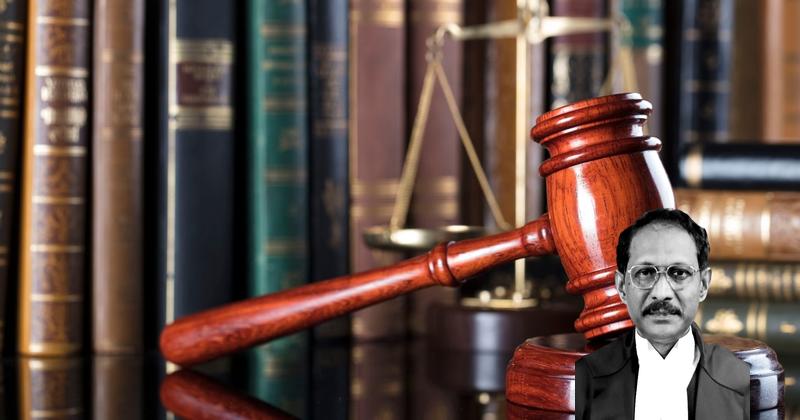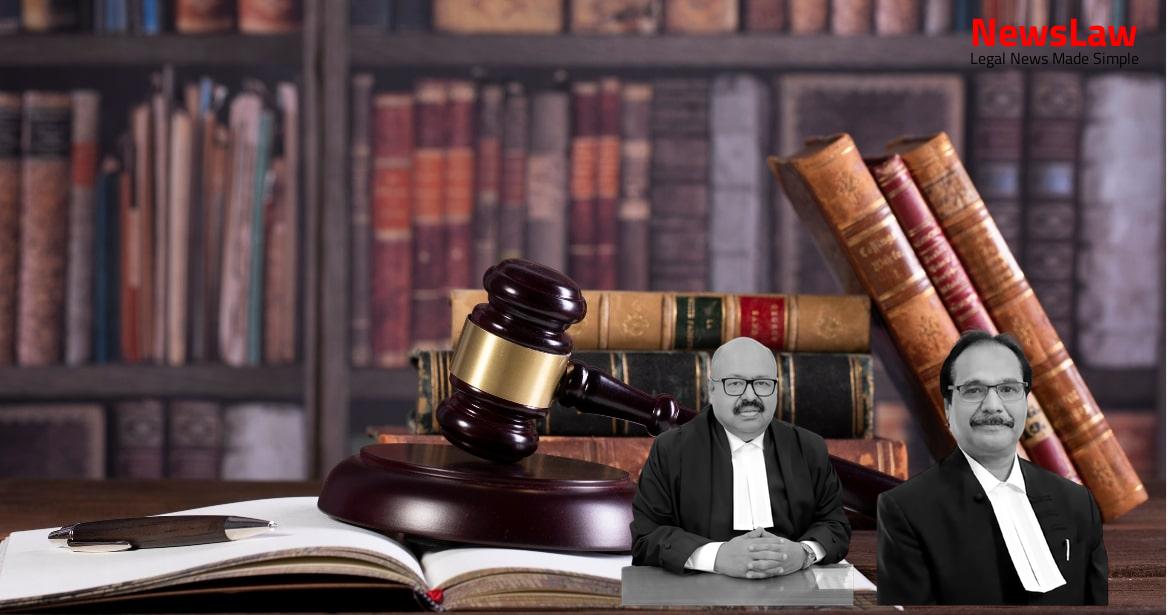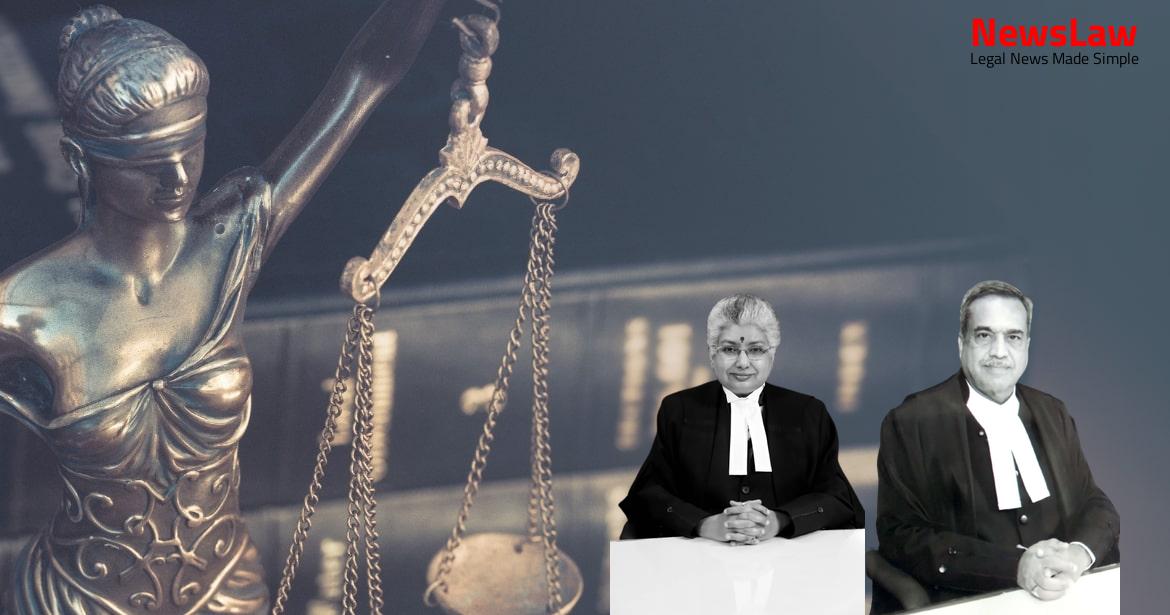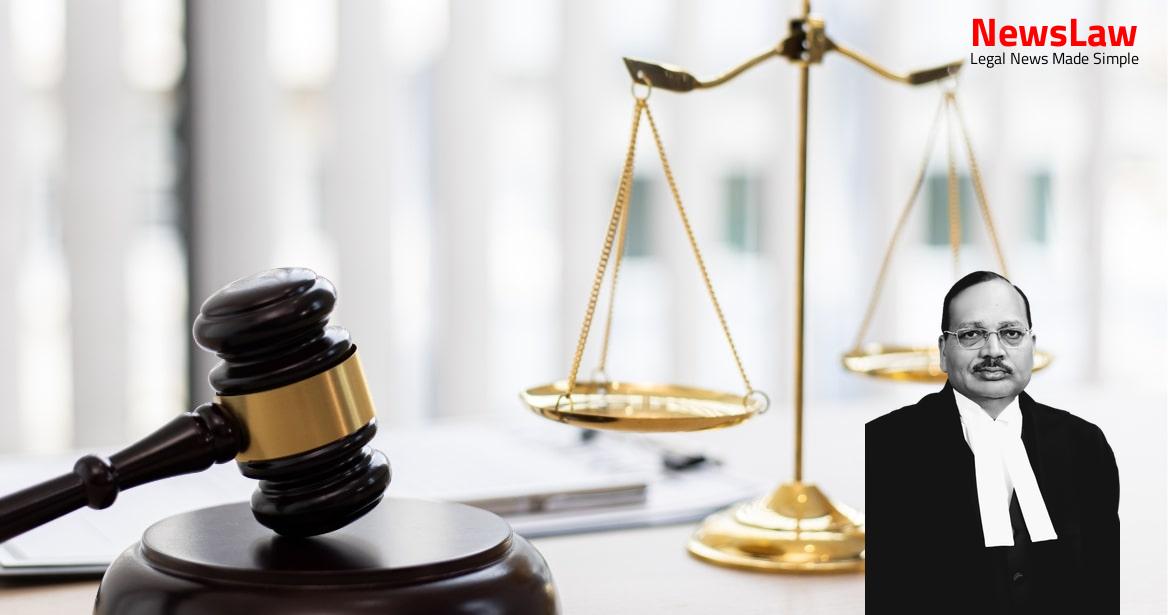Feeling aggrieved and dissatisfied with the impugned common judgment and order dated 02.04.2019 passed by the High Court of Gujarat in Special Civil Application No 18777 of 2018 and other connected matters, as well as the impugned judgment(s) and order(s) passed by the High Court of Gujarat in other special civil applications relying upon its earlier decision in the aforesaid case, whereby the High Court has quashed the notice under Section 153C of the Income Tax Act, 1961 (hereinafter referred to as “Act, 1961”)
Also Read: https://newslaw.in/case-type/civil/acquisition-of-land-and-deemed-lapse-under-the-act-2013/
At the outset, it is required to be noted that the question of law that arises for the consideration of this Court is :- Whether amendment brought to Section 153C of the Income Tax Act, 1961 vide Finance Act, 2015 would be applicable to searches conducted under Section 132 of the Act, 1961 before 01.06.2015, i.e., the date of amendment? From the satisfaction recorded, though it was found that no document belonging to the original writ petitioner – assessee was found during the course of search, however, a hard-disk was seized, which contained an excel sheet with the data of the computer of the searched person, wherein there were references to the petitioner’s name. 911 OF 2022 Page of writ petitioner raised objections to the proceedings under Section 153C of the Act, 1961 contending, inter alia, that on the basis of the excel sheet data of the computer of the searched person wherein there were only references to the original writ petitioner’s name, the Assessing Officer could not have initiated proceedings against him under Section 153C of the Act, 1961, inasmuch as the condition precedent for invoking Section 153C of the Act as it stood on the date of the search, namely, that the Assessing Officer should be satisfied that any money, bullion, jewellery or other valuable article or thing or books of account or documents seized or requisitioned “belongs or belong to” the person other than the searched person, was not satisfied. Feeling aggrieved and dissatisfied with the rejection of the objections against initiation of proceedings under Section 153C of the Act 1961, the original writ petitioner filed the present writ petition before the High Court. The High Court has also observed that since the amendment expands the scope of Section 153C of the Act, 1961 by bringing in an assessee if books of account or documents pertaining to him or containing information relating to him have been seized during the course of search, within the fold of that section, this question assumes significance, inasmuch as in the facts of the present case, as on the date of search, it was only if such material belonged to a person other than the searched person, that the Assessing Officer of the searched person could record such satisfaction and forward the material to the Assessing Officer of such other person. Therefore, by observing that the amended Section 153C of the Act, 1961, shall not be made applicable retrospectively and therefore, no notice could have been issued under Section 153C of the Act, 1961 post-amendment with respect to the searches conducted prior to 01.06.2015, by the impugned common judgment and order, the High Court has allowed the writ petitions and set aside the notice as well as the respective assessment orders. He has taken us to the Section 153C of the Act, 1961 as it stood before the amendment vide Finance Act, 2015 and Section 153C CIVIL APPEAL NO. 911 OF 2022 Page of 132 or making of requisition under Section 132-A in the second proviso to sub-section (1) of Section 153-A shall be construed as reference to the date of receiving the books of account or documents or assets seized or requisitioned by the Assessing Officer having jurisdiction over such other person: (2) Where books of account or documents or assets seized or requisitioned as referred to in sub- section (1) has or have been received by the Assessing Officer having jurisdiction over such other person after the due date for furnishing the return of income for the assessment year relevant to the previous year in which search is conducted under Section 132 or requisition is made under Section CIVIL APPEAL NO. 911 OF 2022 Page of 132-A and in respect of such assessment year— (a) no return of income has been furnished by such other person but no notice under sub-section (2) of Section 142 has been issued to him, or (b) a return of income has been furnished by such other person but no notice under sub-section (2) of Section 143 has been served and limitation of serving the notice under sub-section (2) of Section 143 has expired, or (c) assessment or reassessment, if any, has been made, before the date of receiving the books of account or documents or assets seized or requisitioned by the Assessing Officer having jurisdiction over such other person, such Assessing Officer shall issue the notice and assess or reassess total income of such other person of such assessment year in the manner provided in Section 153-A.” Section 153C of the act after being amended by Finance Act, 2015 reads thus: CIVIL APPEAL NO. Assessing Officer shall proceed against each such other person and issue notice and assess or reassess the income of the other person in accordance with the provisions of Section 153A, if, that Assessing Officer is satisfied that the books of account or documents or assets seized or requisitioned have a bearing on the determination of the total income of such other person for six CIVIL APPEAL NO. 911 OF 2022 Page of assessment years immediately preceding the assessment year relevant to the previous year in which search is conducted or requisition is made and for the relevant assessment year or years referred to in sub-section (1) of Section 153-A: Provided that in case of such other person, the reference to the date of initiation of the search under Section 132 or making of requisition under Section 132-A in the second proviso to sub-section (1) of Section 153-A shall be construed as reference to the date of receiving the books of account or documents or assets seized or requisitioned by the Assessing Officer having jurisdiction over such other person.
Also Read: https://newslaw.in/case-type/civil/c-a-no-003481-003481-2022/
Where books of account or documents or assets seized or requisitioned as referred to in sub- section (1) has or have been received by the Assessing Officer having jurisdiction over such other person after the due date for furnishing the return of income for the assessment year relevant to the previous year in which search is conducted under Section 132 or requisition is made under Section 132-A and in respect of such assessment year— (a) no return of income has been furnished by such other person and no notice under sub-section (1) of Section 142 has been issued to him, or (b) a return of income has been furnished by such other person but no notice under sub-section (2) of Section 143 has been served and limitation of serving the notice under sub-section (2) of Section 143 has expired, or (c) assessment or reassessment, if any, has been made, CIVIL APPEAL NO. 911 OF 2022 Page of before the date of receiving the books of account or documents or assets seized or requisitioned by the Assessing Officer having jurisdiction over such other person, such Assessing Officer shall issue the notice and assess or reassess total income of such other person of such assessment year in the manner provided in Section 153-A.” 4.1 It is submitted by Shri Nataraj, learned ASG that the amendment in Section 153C was necessitated in view of the observation of the Delhi High Court in the case of Pepsico India Holdings Private Limited Vs. 06.2015, Section 153C has been amended by way of substitution to replace the words “belongs or belong to” with the words “pertains or pertain to” insofar as books of account and documents are concerned. 4 Elaborating the above, it is submitted that so far as the effect of amendment to Section 153C is concerned, Section 153C has been amended by way of “substitution”, vide Finance Act, 2015, w.e.f. That in the said decision, it is observed and held that an amendment by substitution has the effect of wiping out the earlier provision from the statute book and replacing it with the amended provision as if the unamended provision never existed. It is submitted that bearing the said legislative intent and the mischief sought to be suppressed in mind, any interpretation other than that the amended Section 153C will apply to all pending and future proceedings, CIVIL APPEAL NO. 7 It is further contended by Shri Nataraj, learned ASG that Section 153C of the Act, 1961 is a machinery provision.
That despite the observation by the High Court that Section 153C of the Act, 1961 is a machinery provision, the High Court has failed to give effect to the object behind it. 911 OF 2022 Page of determination of the total income of such other person for six assessment years immediately preceding the assessment year relevant to the previous year in which search is conducted or requisition is made and for the relevant assessment year or years referred to in sub- section (1) of section 153A” would be defeated. In support of the above, reliance is placed on the decision of this Court in the case of Commissioner of Income Tax Vs. 10 It is further submitted by Shri Nataraj, learned ASG that the High Court has erred in holding that the respondents have a “vested right” and the amendment to Section 153C of the Act, 1961 affects such vested substantive right of the respondents.
While opposing the present appeals, the counsel appearing on behalf of the respective assessees have vehemently submitted that the controversy in the present group of appeals is with respect to the point of applicability of the extant law in search cases, i.e., whether Section 153C of the Act, 1961 as amended with effect from 01.06.2015 would be applicable to cases where search is initiated prior to that date. 911 OF 2022 Page of 5.2 It is further submitted on behalf of the respective assessees that it is the case on behalf of the Department that as Section 153C of the Act, 1961 is a procedural and machinery provision, the amendment, though made with effect from 01.06.2015, is retrospective and, thus, applicable to the cases where search was conducted prior to amendment but the notices under Section 153C of the Act, 1961 have been issued after the amendment.
It is contended that in the present case, the amendment to Section 153C by Finance Act, 2015 brings into the fold of Section 153C of the Act, 1961, assessees, who were not so far covered by it, i.e., persons to whom books of account/documents pertain or relate to, and not just persons to whom it belong. That this widening, thus, affects substantive rights, as new assessees may now be proceeded against and hence the decision of this Court in the case of M.A. That the High Court has specifically observed and held that the amendment to Section 153C of the Act, 1961 is not merely a change in procedure provision affecting the assessees already covered. It is submitted that as rightly observed by the High Court that if on the date of the search in 2013, the material were forwarded by the Assessing Officer of the searched person on the basis that it belongs to the respondents – assessees, challenge against issue of notice under Section 153C of the Act, 1961 would have been successful, as the material does not actually ‘belong’ to the respondent. 911 OF 2022 Page of 5.8 It is further submitted that the amended Section 153C of the Act, 1961 deals with both procedural and substantive rights, therefore, the prospective rule of construction shall be applicable. That Para 80.5 of the Circular clearly states that the amended provisions of Section 153A shall apply where search under Section 132 of the Act, 1961 is initiated or requisition under Section 132A has been made on or after 01.04.2017. 1019, 997, 1016, 1021 and 1023 of 2022 has in addition to the above, further submitted that before the High Court, the respondents – original writ petitioners had raised various grounds for holding that the notices issued under Section 153C were bad and illegal. It is submitted that, therefore, if this Hon’ble Court is to allow the appeals by the Revenue, the matters may be sent back to the High Court for deciding the validity of the notices and other issues that were originally left undecided.
That, thereafter, the Assessing Officer of the respondents – assessees (non-searched persons) after verifying the seized material, found certain incriminating material against them and the cash entries, which were not declared in the original return filed. In light of the aforesaid facts, the question of law, which arises for consideration of this Court is, “Whether amendment brought to Section 153C of the Income Tax Act, 1961 vide Finance Act, 2015 would be applicable to searches conducted under Section 132 of the Act, 1961 before 01.06.2015, i.e., the date of amendment”, is required to be considered.
Therefore, the High Court view gave a very narrow and restrictive meaning to the expression / word “belongs to” and held that the ingredients of Section 153C have not been satisfied. Thus, having found that the observation made by the Delhi High Court in the case of Pepsico India Holdings Private Limited (supra) led to a situation where, though incriminating material pertaining to third party was found during the search proceedings under Section 132, the Revenue could not proceed against the third parties, it was observed that the said observation made by the Delhi High Court in the aforesaid decision was coming in the way of suppressing the very mischief which the legislature intended to suppress, which CIVIL APPEAL NO. Proviso to Section 153C as inserted vide Finance Act, 2005 reads as under:- “Provided that in case of such other person, the reference to the date of initiation of the search under Section 132 or making of requisition under Section 132- A in the second proviso to sub-section (1) of Section 153-A shall be construed as reference to the date of receiving the books of account or documents or assets seized or requisitioned by the Assessing Officer having jurisdiction over such other person.” 06.2015, the books of account or documents or assets were seized by the Assessing Officer of the non-searched person only on 25.04.2017, which is subsequent to the amendment, therefore, when the notice under Section 153C was issued on 04.05.2018, the provision of the law existing as on that date, i.e., the amended Section 153C shall be applicable. Substitution of a provision results in repeal of the earlier provision and its replacement by the new provision (see Principles of Statutory Interpretation, ibid., p. [(2002) 2 SCC 645] a three-Judge Bench of this Court held that the State Government by substituting the new rule in place of the old one never intended to keep alive the old rule. In Mangilal Pindwal case [(1996) 5 SCC 60] this Court upheld the legislative practice of an amendment by substitution being incorporated in the text of a statute which had ceased to exist and held that the substitution would have the effect of amending the operation of law during the period in which it was in force. If a new Act is “to explain” an earlier Act, it would be without object unless construed retrospectively. If it is a necessary implication from the language employed that the legislature intended a particular section to have a retrospective operation, the courts will give it such an operation.
Also Read: https://newslaw.in/case-type/civil/taxation-of-engineering-design-drawings-goods-or-services/
The retrospectivity is liable to be decided on a few touchstones such as: (i) the words used must expressly provide or clearly imply retrospective operation; (ii) the retrospectivity must be reasonable and not excessive or harsh, otherwise it CIVIL APPEAL NO. Consequently, the absence of a validating clause would not by itself affect the retrospective operation of the statutory provision, if such retrospectivity is otherwise apparent. The true reason of the remedy; and then the office of all the judges is always to make such construction as shall suppress the mischief, and advance the remedy, and to suppress subtle inventions and evasions for continuance of the mischief, and pro privato commodo, and to add force and life to the cure and remedy, according to the true CIVIL APPEAL NO. 911 OF 2022 Page of intent of the makers of the Act, pro bono publico.’ ” 10.6 It is the case on behalf of the Revenue that Section 153C is a machinery provision, which has been inserted with the purpose of carrying out the assessment of persons other than the searched person under Section 132 of the Act, 1961.
Section 158- BC of the Act provides the procedure for block assessment and Section 158-BD of the Act provides for assessments in the case of an undisclosed income of any other person. 911 OF 2022 Page of as may be specified in the notice a return in the prescribed form and verified in the same manner as a return under clause (i) of sub- section (1) of Section 142, setting forth his total income including the undisclosed income for the block period: Provided that no notice under Section 148 is required to be issued for the purpose of proceeding under this Chapter: Provided further that a person who has furnished a return under this clause shall not be entitled to file a revised return; (b) the assessing officer shall proceed to determine the undisclosed income of the block period in the manner laid down in Section 158-BB and the provisions of Section 142, sub-sections (2) and (3) of Section 143, Section 144 and Section 145 shall, so far as may be, apply; (c) the assessing officer, on determination of the undisclosed income of the block period in accordance with this Chapter, CIVIL APPEAL NO. —Where the assessing officer is satisfied that any undisclosed income belongs to any person other than the person with respect to whom search was made under Section 132 or whose books of account or other documents or any assets were requisitioned under Section 132-A, then, the books of account, other documents or assets seized or requisitioned shall be handed over to the assessing officer having jurisdiction over such other person and that assessing officer shall proceed under Section 158- BC against such other person and the provisions of this Chapter shall apply accordingly.”
It is, however, also well settled that the machinery provisions for calculating the tax or the procedure for its calculation are to be construed by ordinary rule of construction. In Gursahai Saigal [(1963) 48 ITR 1 (SC)] the question which fell for consideration before this Court was construction of the machinery provisions vis–vis the charging provisions. CIT [(1963) 48 ITR 1 (SC)]; CWT v. National Taj Traders [(1980) 1 SCC 370]; Associated Cement Co.
Case Title: INCOME TAX OFFICER Vs. VIKRAM SUJITKUMAR BHATIA (2023 INSC 327)
Case Number: C.A. No.-000911-000911 / 2022



